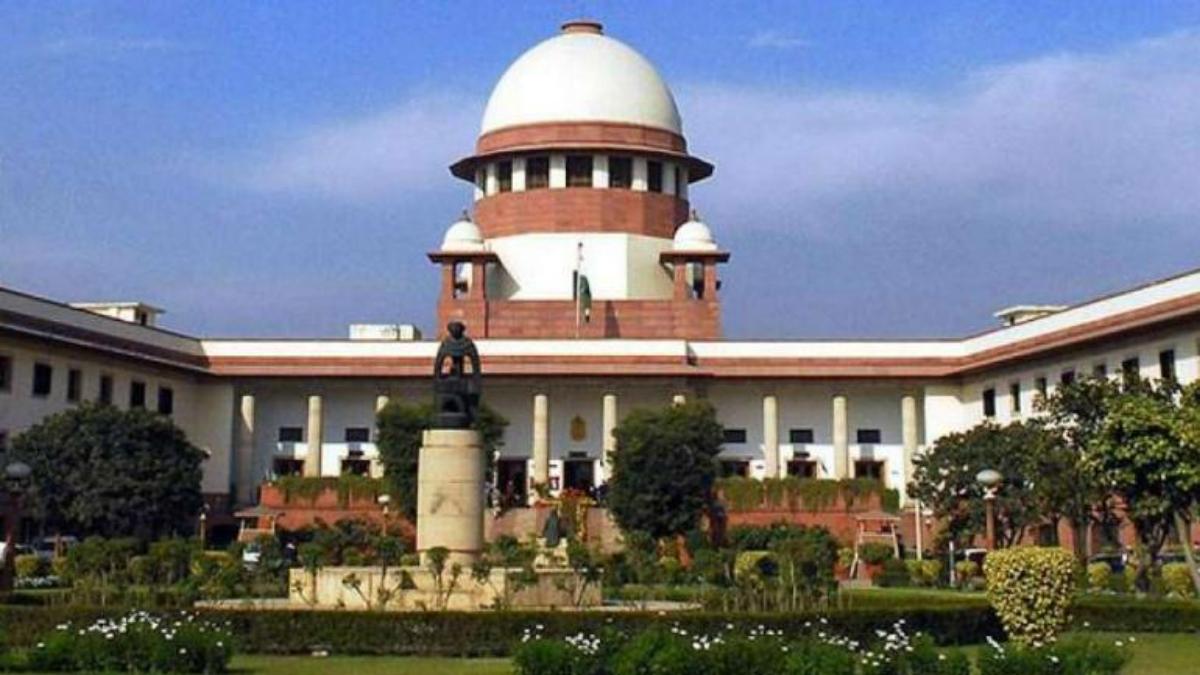New Delhi: The Supreme Court on Wednesday gave the Centre four weeks to respond to a number of petitions challenging the Citizenship (Amendment) Act, 2019. The matter will be listed again after five weeks.
The court was hearing a batch of pleas seeking to examine the constitutional validity of the Act. While some parties argued that the implementation of the law should be stayed for the duration of the hearing, the bench did not do so. Some others also asked for the law’s implementation to be postponed, but the CJI responded by saying that is the same as asking for a stay.
A total of 143 petitions have been filed before the court. According to LiveLaw, the bench agreed to hear the petitions from Tripura and Assam separately, because of the special grounds in those cases. “In Assam there is a unique problem because of Bangladesh. Earlier the date was 1950, then it was extended to 1971. The extension is challenged before this court. It’s referred to larger bench,” senior advocate Vikas Singh said about Assam.
This is the second time the court is issuing notice to the Centre. Attorney General K.K. Venugopal said the government needed more time because 80 additional petitions had been filed since the first time the court issued notice.
The apex court has also restrained high courts from dealing with petitions about the CAA.
The petitions
A bench, headed by Chief Justice S.A. Bobde, which had issued notice to the Centre on December 18 on various pleas, heard a batch of 143 petitions, including those filed by the Indian Union Muslim League (IUML) and Congress leader Jairam Ramesh.
The CAA seeks to grant citizenship rights to non-Muslim migrants belonging to Hindu, Sikh, Buddhist, Christian, Jain and Parsi communities who came to the country from Pakistan, Bangladesh and Afghanistan on or before December 31, 2014. It has been widely criticised both within and outside India and discriminatory. It is the first Indian law to grant citizenship on the basis of religion.
Some of the petitions filed later also sought a stay on the operation of the legislation which came into force on January 10.
The apex court had on January 9 refused to entertain a plea seeking that the CAA be declared constitutional, saying the country is going through difficult times and there is so much violence that endeavour should be for peace.
IUML said in its plea that CAA violates the fundamental Right to Equality and intends to grant citizenship to a section of illegal immigrants by making an exclusion on the basis of religion.
President Ram Nath Kovind gave assent to the Citizenship (Amendment) Bill, 2019 on December 12, turning it into an Act.
IUML seeks an interim stay on the operation of CAA and the Foreigner Amendment (Order), 2015 and Passport (Entry Into Rules), Amendment Rules, 2015. The petition had alleged that the government’s CAA was against the basic structure of the Constitution and intended to explicitly discriminate against Muslims as the Act extended benefits only to Hindus, Sikhs, Buddhists, Jains, Parsis and Christians.
The plea filed by Congress leader Jairam Ramesh, said the Act is a “brazen attack” on core fundamental rights envisaged under the Constitution and treats “equals as unequal”.
Ramesh said the substantial questions of law, including whether religion can be a factor to either acquire or deny citizenship in India, arises for consideration of the court as it is a “patently unconstitutional” amendment to the Citizenship Act, 1955.
“The impugned Act creates two classifications, viz, classification on basis of religion and the classification on the basis of geography and both the classifications are completely unreasonable and share no rational nexus to the object of the impugned Act i.e., to provide shelter, safety and citizenship to communities who in their native country are facing persecution on grounds of religion,” the plea has said.
Several petitions have been filed challenging the constitutional validity of the CAA, including by RJD leader Manoj Jha, Trinamool Congress MP Mahua Moitra and AIMIM leader Asaduddin Owaisi. Several other petitioners include Muslim body Jamiat Ulama-i-Hind, All Assam Students Union (AASU), Peace Party, CPI, NGOs ‘Rihai Manch’ and Citizens Against Hate, advocate M.L. Sharma, and law students have also approached the apex court challenging the Act.
Shutdown in the Northeast
In light of the Supreme Court hearing beginning, student associations across the Northeast have called for a total shutdown, The Hindu reported. AASU’s petition will be among those heard today.
In a statement on Tuesday, a group of Northeastern universities said they hoped the apex court would address the “unconstitutional and contentious CAA and its ill repercussions” on the indigenous people in the Northeast.
(With PTI inputs)
